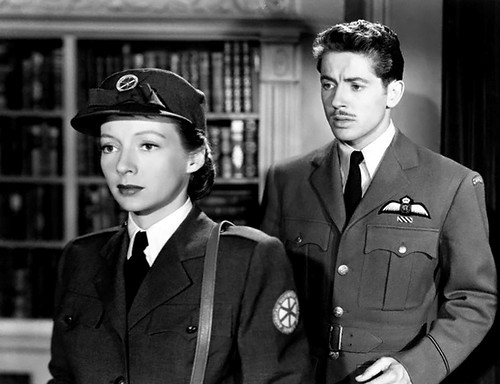- Messages
- 12,736
- Location
- Northern California
Very well said, Fading Fast!View attachment 303056
The Apartment from 1960 Jack Lemmon, Shirley MacLaine and Fred MacMurray
Jack Lemmon is a young New York City insurance company employee who informally loans his bachelor apartment out to some of the married senior executives to use for their affairs. But since Lemmon's smitten by one of the office building's female elevator operators, Shirley MacLaine, his attention is elsewhere as he's nothing more than amused by his bosses' assignations, even as he begins to benefit from this arrangement as his pandering bosses promote him.
However, when he accidentally discovers that a very senior married executive, Fred MacMurray, is having an affair with MacLaine, which MacMuarray sees as nothing more than a casual side adventure, despite leading MacLaine to believe it's more, Lemmon's indifference is shattered. When MacLaine painful learns the truth of her status in a crushing scene where MacMurray all but hands her cash for their recent roll in the hay, she attempts suicide in Lemmon's apartment only to be rescued and nursed by back to health by Lemmon and his doctor neighbor.
The rest of the movie is Lemmon coming to terms with his part in these "harmless" affairs, MacMurray, as things unravel, viciously trying to keep the affair secret from his wife and MacLaine accepting that she's been played hard while, finally, noticing that Lemmon isn't just a friend.
Having seen this one several times over several decades, what struck me during this viewing was, yes, how frank, even nonchalant, the movie is about extra-marital affairs and, yes, how stone-cold selfish Fred MacMurray's character is (and how frighteningly good MacMurray is at playing him), but even more so, how soul-crushingly sad almost everyone's life in this movie is.
While the men joke about their affairs, there's no real joy in them as the men are bitter, cynical husbands who seem to be going through the motions of having affairs either as a temporary escape or to have something to brag about at work.
And while their "girlfriends" might giggle and put on a show of happiness on the outside, they too seem broken and bitter just below the surface. They're either disappointed that they are "the other woman" or are cynically playing the men for money and gifts while the men are playing them for sex without commitment. No one is really enjoying themselves.
Standing atop all this miserableness is MacMurray who plays the perfect husband and dad at home while lying to everyone, all the time, to keep his two worlds apart. And even though it's easy and right to despise him for his brutal nastiness - he keeps a former aging "girlfriend" on as his secretary to, as she notes, see the younger models come and go - he seems no happier than anyone else - financially successful, yes; happy, no.
In The Apartment, director and co-writer, with I.A.L. Diamond, Billy Wilder serves up an amazing rebuke to all those lighthearted, early 1960s "battle of the sexes" movies - think Rock Hudson and Doris Day in Pillow Talk - where single middle-aged adults don't have sex and marriage is the answer to all problems. In Wilder's much darker world, Shirley MacLaine sums up the disaffection felt by all when Lemmon, noticing that her compact mirror is cracked, asks her if she knows it's broken, responds, "yes, I know, I like it that way, it makes me look the way I feel."
Beautiful cinematography, very good acting, and entertaining; I always watch it when I stumble upon it.



